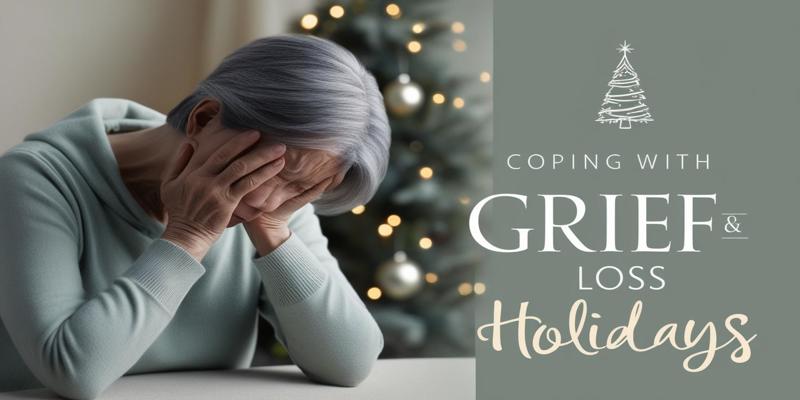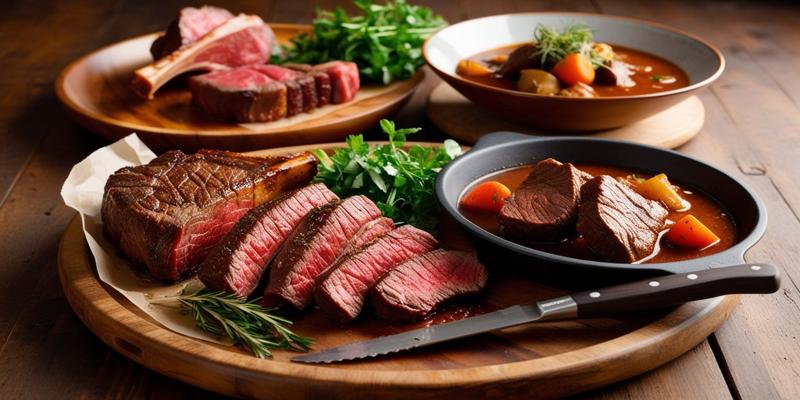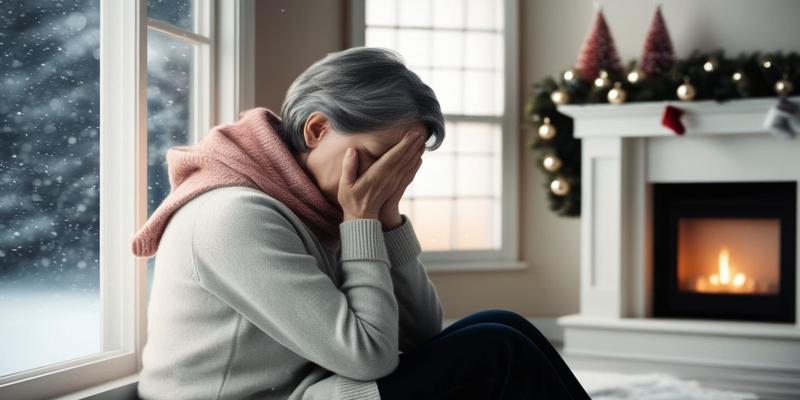Holiday seasons may prove a challenging period in which someone is grieving the loss of a loved one. While for many others, there is a celebration and holiday cheer; you may, in turn, face a mix of complicated feelings that evoke painful reminders about your loss. Well, there are constructive ways to pass this time with less pain. This article will help you explore ways to navigate the holidays while grieving-ways to honor your loved one and find moments of peace amidst your sorrow.
Grief and Loss Throughout the Holiday Seasons
 Holiday seasons are some of the most painful periods concerning grieves and loss. One needs acknowledgment and recognition to believe they have normal feelings about healing. Acknowledgment rather than suppression of emotions is essential during such periods in controlling grief.
Holiday seasons are some of the most painful periods concerning grieves and loss. One needs acknowledgment and recognition to believe they have normal feelings about healing. Acknowledgment rather than suppression of emotions is essential during such periods in controlling grief.
Understanding Loss
Holidays also often magnify the loss of a loved one or a transition that has happened. For most individuals, familiar rhythms and rituals seem daunting, usually just too memorable, triggering upsetting emotions and thoughts. It's reassuring that these responses are normal, even expected. Allow yourself whatever feelings present for you and try not to judge them, as every person's process of moving through bereavement is going to vary.
Honoring Your Feelings
Allow yourself to feel a range of emotions. Some days are joyful and nostalgic, others sad or angry. This is normal, and it in no way diminishes the love you have for the deceased. It may be helpful to write in a journal to express your thoughts and feelings and to process your grief.
Creating New Traditions
While it may be comforting to honor old traditions, building new ones can also be therapeutic. This may include things such as:
- Lighting a candle in memory of your loved one
- Sharing favorite stories or memories with family and friends
- Volunteering or donating to a cause your loved one supported
Dealing with Family Gatherings and Traditions
 Honoring Memories While Creating New Ones
Honoring Memories While Creating New Ones
The most difficult times dealing with your loss are during the holidays or around family gatherings. Holidays heighten or prolong the feeling of a person's absence, compounding your acuteness of grief. But know these times do pass, and you will make it through. It would help if you allowed yourself some periods of calmness.
Consider having a conversation ahead of time with family members. Let them know that this may be a difficult time and that you might need extra consideration or to step back during certain activities or times. And that is OK. There is no "right" way to navigate these situations—do what feels right.
Changing Traditions
It may be to continue some of the traditions but to change others. You may:
- Set a place at the table for your loved one
- Light a candle in their memory?
- Share favorite stories or memories about them.
- Please create a new tradition that honors their memory.
These actions will acknowledge your loss and allow your loved one's spirit to continue to be part of the celebration.
Caring for Yourself
Pay attention to your physical and emotional limits during family gatherings. If you are becoming overwhelmed, take a few moments to yourself in quiet or leave early. Do not hesitate to call on a family member or friend for support.
Self-Care Strategies to Deal with Your Grief
The holiday season is usually the best time for self-care while dealing with grief and loss; this will help you cope well with the situation. Some of the ways you can manage these are highlighted below.
Accept Your Emotions
Let yourself feel this is real, and allow emotions of sadness, anger, or any other feelings that may come up without judgment. Bottling up these emotions will only lead to more stress and anxiety. On the contrary, try putting it on paper in a journal or discussing these feelings with a close friend or therapist.
Establish Healthy Boundaries
You may be compelled to engage in stressful activities or company during the festive season. You do not have to feel obligated to accept all invitations or attend events you cannot manage. Communicate your needs and set boundaries for family and friends. This may alleviate some of the stressors and prevent emotional burnout.
Mindfulness and Relaxation
Practice mindfulness: Reduce the stress associated with your loss by being more mindful of your life. You can practice deep breathing, meditation, or some light form of yoga that will center you and help you hold your ground in the present rather than losing yourself to bitter memories of the past or misfortunes to be faced in the future.
Take Care of Your Physical Health
Grief is complicated for your body, so attending to your physical needs is critical. Exercise regularly, and take at least a short daily walk. Go to bed at a decent hour and try to eat well. Avoid drugs and booze; these may deaden emotional pain for a time but are ultimately destructive to healing.
Support from Loved Ones and Professionals
Reaching Out to Family and Friends
The holiday season is a time of year when your support network means so much to you. Reach out to family and friends with whom you can share comforting feelings. Express your feelings as freely as you want, but remember, it is okay to ask for help. Being around loved ones may give you a sense of being and remind you that you are not alone in the grief journey.
Joining a Support Group
One should join a grief support group for holiday loss. It is a place to share one's experiences with others who have undergone similar situations. Many of the groups are conducted at community centers, hospitals, and religious organizations. Online forums and virtual support groups can be equally helpful and provide 24/7 support through understanding peers.
Professional Help
If one is at a breaking point and trying to put on a good face is taking an emotional toll, it isn't unmanly or unwomanly to call in professional help. A grief counseling therapist or professional can prepare ways of going through complex feelings about a loss experienced around holidays. They would help explore healthier ways to work out your emotions, particularly guilt, angry feelings, and depression, which can become more serious.
Conclusion
As you live through a holiday season in a time of sorrow, remember that healing is different for everyone and goes at its own pace. Knowing how you feel, seeking support, and finding ways to honor your loved one can bring peace-islands and even moments of joy in the pain. Be patient and kind to yourself as you make new traditions or find ways to celebrate where you are authentically. Your road ahead is yours alone, but you must not be in a void.












